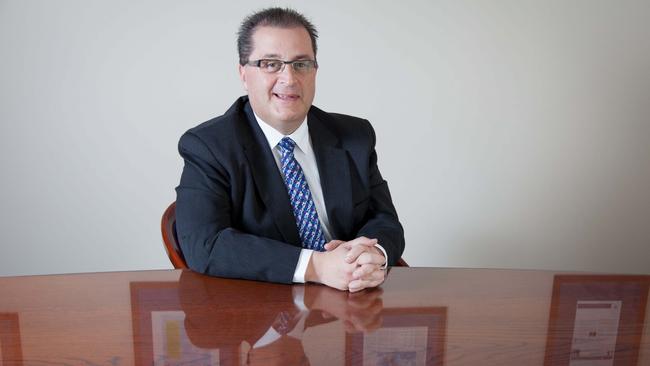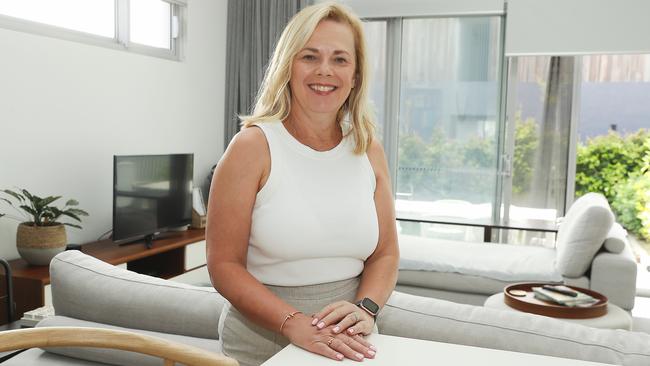Early retirement: 10 tips to help you stop work before age 60
Australia’s pension age has just ticked over to 67, but many people want to retire before that. Here’s how it can be achieved.

Retirement is being redefined as Australians live and work longer, but many people still dream of retiring young enough to enjoy middle age through travel, experiences and financial freedom.
While the official pension age rose to from 66.5 to 67 years on July 1, a goal of stopping work at 60 or earlier remains achievable for many people.
Some people will use their own funds between 60 and 67, then get some relief from a part pension after 67, while others aim to be fully self-funded given the maximum pension for a single person is about $530 a week.
“Retirement really has been a new concept on planet Earth,” financial strategist Theo Marinis said.
While Australia’s initial pension age of 65 started in the early 1900s, “200 years ago, if you didn’t work on the farm, you didn’t eat, so you worked until you dropped,” he said.
Today Australians have unlimited choices, and many strategies that can help them retire at 60. Here are 10.
1. START EARLY
Mr Marinis’s message to clients is simple: start pumping extra money into superannuation “as soon as you can, as much as you can, for as long as you can”.
“If you start early enough and continue to contribute, compound interest will get you there,” he said.
Investment platform Stockspot’s founder and CEO, Chris Brycki, said investing as early as possible was the most important step to take to retire before 60.
2. HARNESS COMPOUND INTEREST
The process of earning interest, on your interest, on your interest and so on is the secret to multiplying wealth over time. Examine the free moneysmart.gov.au compound interest calculator and you will find that, for example, $10,000 invested today and compounding at 6 per cent per year will grow to $32,000 after 20 years and $103,000 after 40, without adding to the initial investment.

“Due to the power of compounding growth, which Albert Einstein reportedly said is the most powerful force in the universe, you can significantly boost your savings over time,” Mr Brycki said.
“For example, $20,000 invested with 8 per cent returns per annum, after tax, and with $100 monthly top ups is worth nearly $370,000 after 30 years,” he said.
3. KNOW WHERE YOU STAND NOW
It is important to assess your current financial situation.
“This includes understanding your income, expenses, assets, and debts,” Mr Brycki said.
“This will give you a clear picture of your current financial position and help you identify any areas where you need to make changes or improvements.”
Find out your current wealth in super and other investments, and use free calculators on super fund websites to project your balance at 60.
Modelling by the Association of Superannuation Funds of Australia suggests a single person wanting to retire comfortably at 67 requires a lump sum of $595,000 to enable them to live comfortably on a mix of age pension and their own savings. Anyone wanting to retire seven years earlier will need a significantly larger lump sum.
4. CUT NEEDLESS COSTS
Mr Brycki recommended reducing debt fast. “Outside of the family home, you should ensure that any unnecessary debt or high-interest debt is paid off,” he said.
“Credit card debt, personal loans, holiday loans and boat loans can be expensive to maintain, say interest rates of 20 per cent or more, and will take away from your ability to invest.”
People also should check their superannuation fees and insurance costs, Mr Brycki said.
“If you are paying more than 1 per cent in fees to your superannuation provider annually, then you are probably paying too much. Finding a super provider that charges just 1 per cent less in fees than a similar fund will leave you $245,000 better off in retirement.”
5. WRITE DOWN YOUR GOALS AND PLANS
Without a map of where you want to go, how will you get there?
Written goals can help people focus on what is important to them, and plans can put ideas into action.
Author and financial adviser Helen Baker said writing down goals could ensure that partners and spouses sought the same things and had similar values and the same spending plan.
“Sometimes there are some differences,” she said.
“It is also about checking if the goals are realistic and the amounts and time committed to the goals are realistic.”
6. BE FLEXIBLE
Things change, so be ready to adapt if needed.
“Retiring earlier mean you will need a lot more behind you than someone who retires later,” Ms Baker said.
“You will need to be able to weather storms as there will always be one at some point.
“It’s also about understanding that if you retire at 60, but access to age pension isn’t available until 67, things may change. Governments change and you can’t bank on it being there at that age.
“It may change to 70, or you may need less assets to be able to claim, so having a self-sufficient plan with some modifications is also good to test out.”

7. USE SUPER WISELY
Paying unnecessary tax dents your nest egg, and it can grow to a gaping hole if compounded over decades.
Ms Baker said manage tax using structures and strategies so your overall wealth was stretched further.
Superannuation remains one of the best structures for low-tax saving. In the accumulation phase the maximum tax is 15 per cent, and a majority of people who retire after age 60 pay no tax on their super pensions or withdrawals.
8. LOOK BEYOND SUPER
Not every cent should be in super, and many Australians also have investments in shares and property – the nation has 2.2 million landlords.
Ms Baker said it was wise to have money accumulated outside of super in case legislation changed.
Mr Marinis agreed. “Investing outside of super is not as tax effective, but if they change the rules on you and increase the preservation age, you might have a lot of money but can’t get your hands on it.”
9. RETHINK RETIREMENT
Don’t rush into retirement, experts say.
“A lot of people still want to retire early, but I’m seeing more people realise they are still young … if they like what they do, why would they retire?” Mr Marinis said.
“If you are working part-time, you don’t need as big a lump sum and it will last longer.”
“With the shortage of labour at the moment, there is more flexibility for older people to work part-time … maybe ask your boss to work three days a week and you get a long weekend every week.”
10. SEEK ADVICE
There are online tools and calculators to help people work out what they need and how much they should invest to achieve an early retirement, but financial advisers still play a key role, and looming government changes should see super funds provide more advice in future.
“You need a plan and have got to work out how you are going to get there,” Mr Marinis said.
“In the long term, the more aggressive your portfolio, the bigger your returns will be. Invest as aggressively as you can, subject to your tolerance for risk.”
Stockspot’s Mr Brycki said for many people it was worthwhile seeking help from a financial planner to create a comprehensive retirement plan.
Ms Baker said the right advice should pay for itself through better outcomes and peace of mind.
“There are so many tricks and concepts that can make a difference,” she said.

RETIRING DOESN’T MEAN STOPPING
Whitney Luxford, 53, retired from full-time work after years working in aviation health, and the former paramedic is now working on her own small health education business Aviation Global Assist.
She invests in shares and real estate and has a financial adviser.
“Initially we were just buying shares such as airlines and CBA, but you put all your eggs in one basket and are trying to pick and choose,” Ms Luxford said.
“We then sold those and invested the money into Stockspot … there are low management fees and returns are really good with ETFs.
“Do you ever really retire? I could not continue the grind of being beholden to a corporate employer.
“I think these days a lot of people don’t retire fully. A lot of people who are retired say they’re bored.”







To join the conversation, please log in. Don't have an account? Register
Join the conversation, you are commenting as Logout